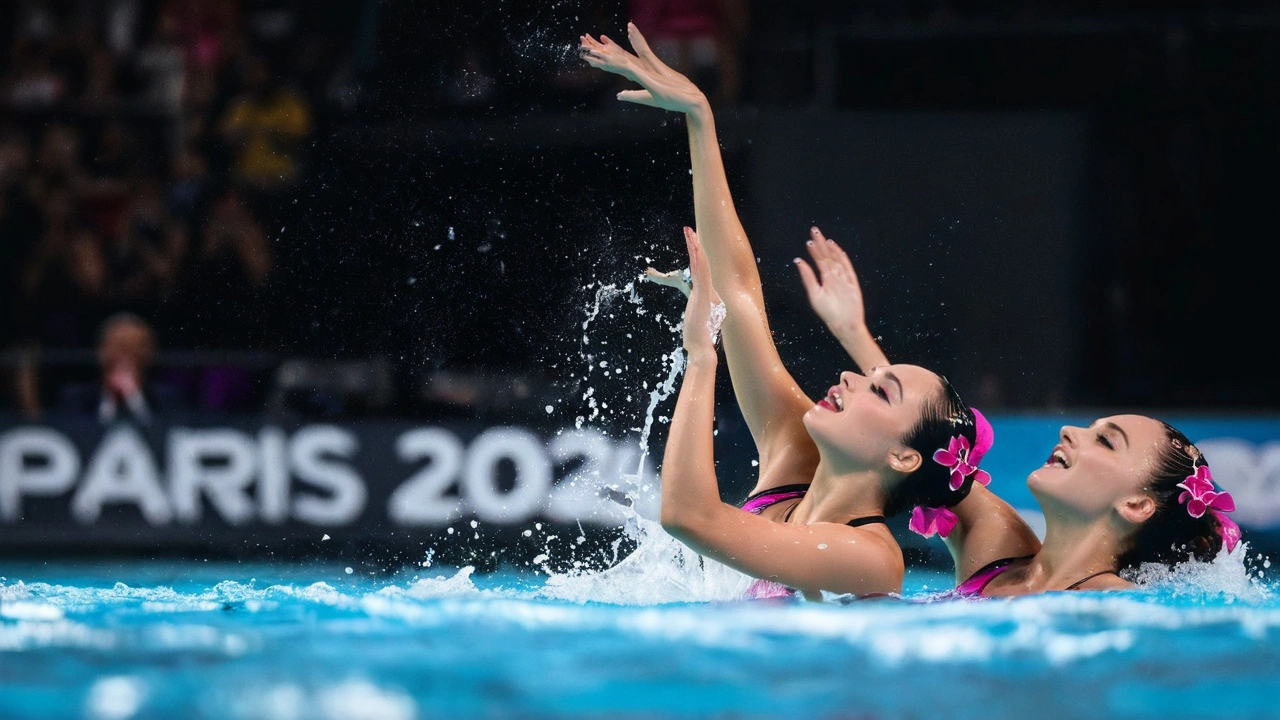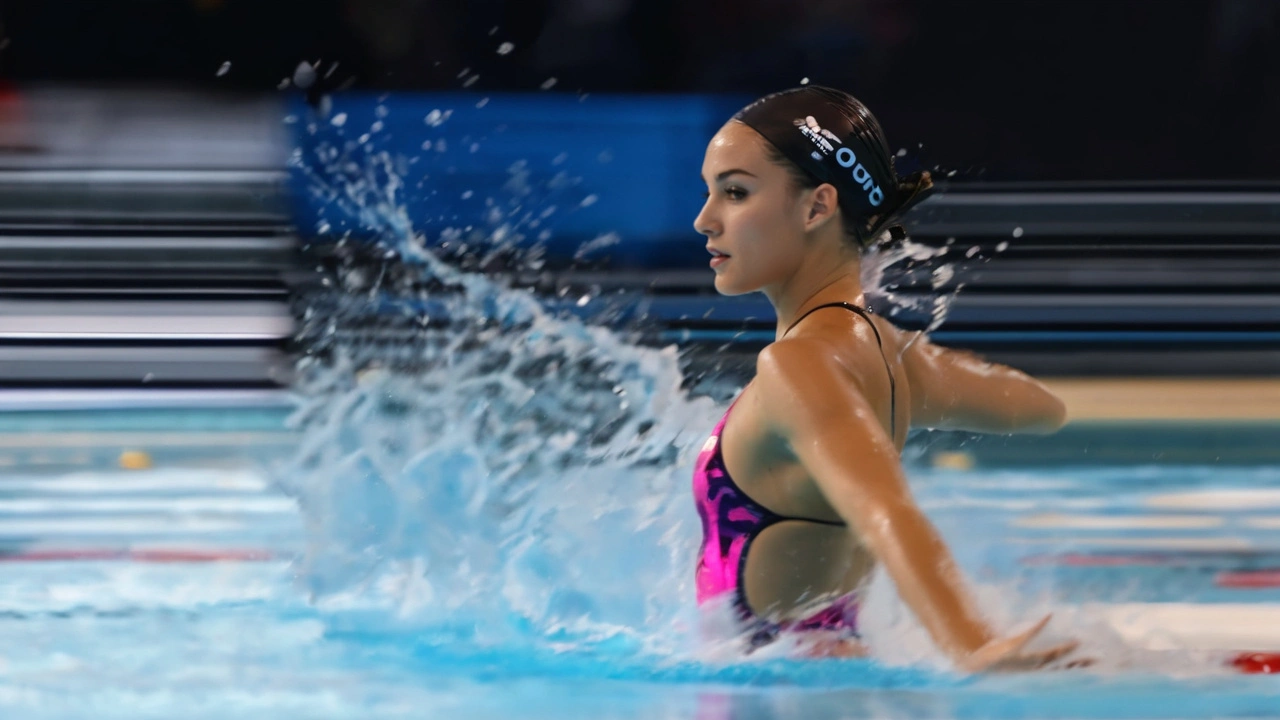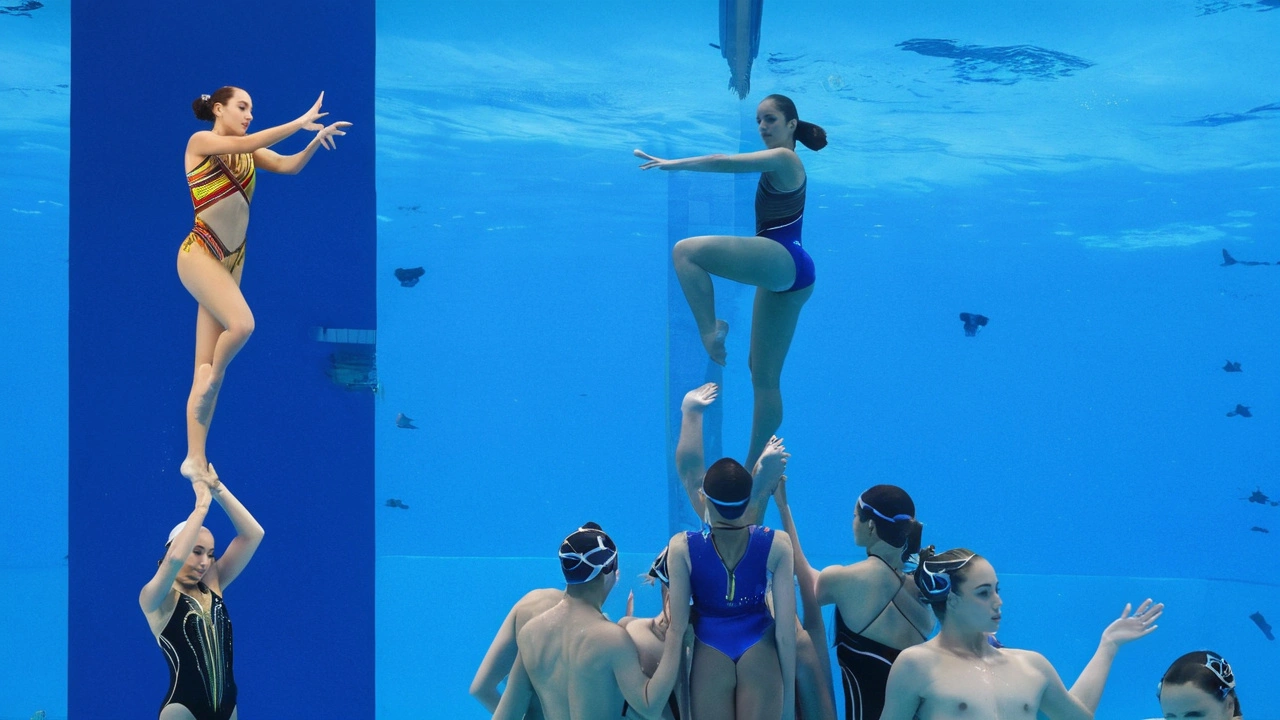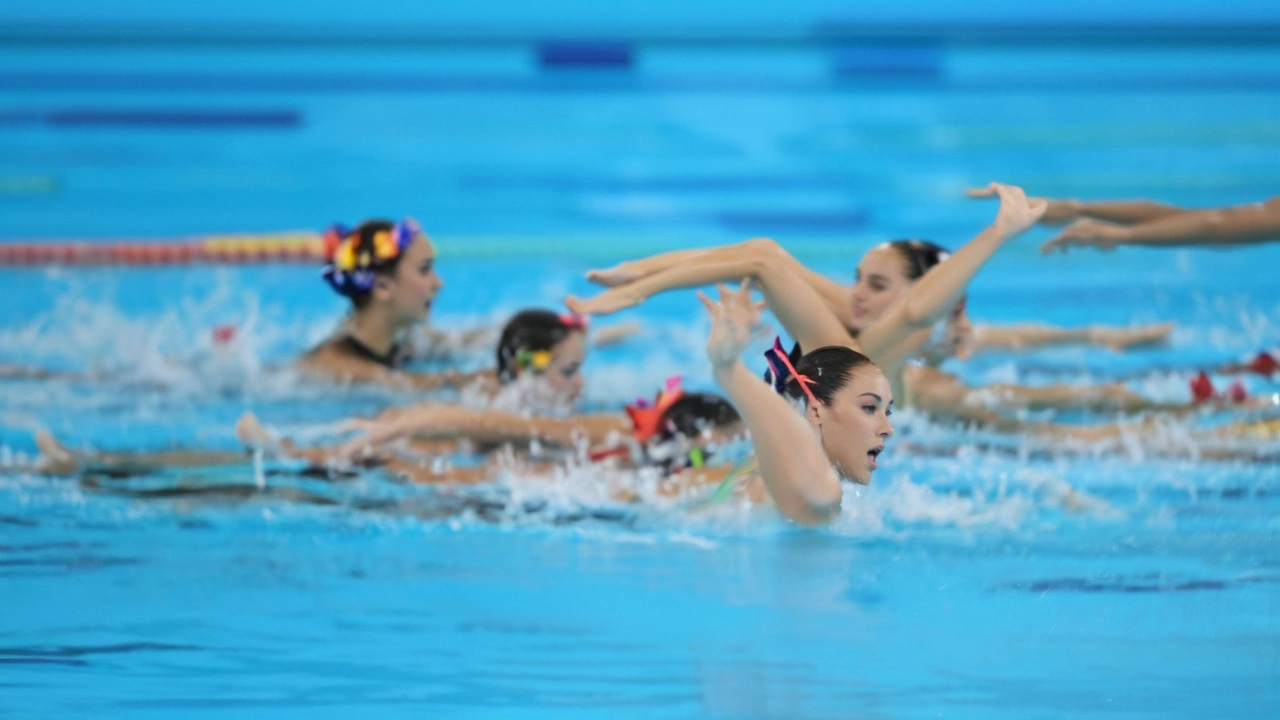
Men to Compete in Artistic Swimming for the First Time at Paris 2024 Olympics
The Paris 2024 Summer Olympics are set to make history by including men in the artistic swimming competition for the first time. This landmark decision signifies a major milestone both for the sport and for the broader movement towards gender equality in athletics. Artistic swimming, previously known as synchronized swimming, has been an exclusively female event since it was introduced to the Olympics in 1984. The inclusion of men marks a progressive shift that is poised to broaden the appeal and outreach of this captivating sport.
The transformation journey for artistic swimming has been gradual but steady. The International Swimming Federation (FINA) made a pivotal decision in 2017 when they rebranded synchronized swimming as artistic swimming. This change was not merely superficial; it aimed to reflect the sport's dual emphasis on artistic expression and athletic intensity. The discipline, which seamlessly blends dance, gymnastics, and swimming, has gained a reputation for its demanding nature, requiring high levels of strength, grace, and endurance.
FINA's recent decision to allow men to compete is part of its broader strategy to make the sport more inclusive. By doing so, FINA aims to modernize the sport and make it more appealing to a wider audience. This move is also in alignment with global efforts to promote gender equality in sports. The inclusion of men is expected to add a new dynamic to the competitions, attracting more viewers and participants from diverse backgrounds.
At the Paris 2024 Olympics, both solo and duet events for men will be introduced, alongside the existing women’s events. This expanded program is anticipated to draw significant attention and bring a fresh perspective to the artistic swimming contests. The Olympic artistic swimming events are scheduled to take place at the Seine Musicale, a state-of-the-art venue located in the heart of Paris. Known for its architectural brilliance and cultural significance, the Seine Musicale promises to provide a spectacular backdrop for these historic competitions.
The inclusion of men in artistic swimming at the Olympic level is not just about adding another category of events; it represents a cultural shift in the sport. By opening the doors to male participants, FINA is challenging traditional gender norms and paving the way for a more inclusive future in athletics. This development can potentially inspire similar changes in other sports as well, contributing to a more equitable sporting environment worldwide.
The decision has been met with a variety of reactions from different quarters. While many have hailed it as a progressive step towards gender equality, some traditionalists have expressed reservations. However, the general consensus within the athletics community appears to be largely positive. Several male artistic swimmers, who have long awaited this opportunity, are excited to showcase their talents on a global stage.
Artistic swimming's rich history underscores the significance of this moment. Since its inception as a competitive sport in the early 20th century, it has evolved substantially. Initially performed at aquatic exhibitions, it gained competitive recognition and eventually found its place in the Olympics. Women have dominated the field since its Olympic debut in 1984, but men have also contributed significantly over the years, albeit in non-Olympic capacities. Their inclusion in the 2024 Games thus marks a continuation of this evolution.
The upcoming Olympics promise to be a grand spectacle with a diverse array of sports. The addition of men in artistic swimming will undoubtedly add another layer of excitement and intrigue. Enthusiasts and newcomers alike are eager to witness this new chapter for the sport, which combines the artistry of dance with the rigor of athletic performance.
Looking ahead, the broader impact of this decision remains to be seen. It is likely that other sports may follow suit, opening up opportunities for athletes across genders. As more Olympic sports embrace gender inclusivity, the London 2012 and Rio 2016 Games, which also made significant strides in this direction, stand out as influential precursors.

The Road to Paris 2024
The journey leading up to Paris 2024 has been filled with anticipation and preparation. With the new inclusion, male artistic swimmers around the world are intensifying their training regimes. As they get ready to perform on one of the biggest stages in the world, their routines are being meticulously crafted to meet the high standards expected at the Olympics.
Coaches, athletes, and choreographers are working in unified coordination to ensure that the performances are not just competitive but also artistically enriching. The routines are expected to showcase a blend of innovation, technical perfection, and emotional depth. Male participants are keen to demonstrate that they can match the grace and prowess displayed by their female counterparts.
In terms of logistics, the Seine Musicale is undergoing various preparations to host the artistic swimming events. This venue is renowned not only for its aesthetic appeal but also for its state-of-the-art facilities. The choice of this specific location in Paris is reflective of the importance placed on culture and art in the context of the Olympics. The venue will be transformed into a world-class aquatic arena, where each routine will be performed against the picturesque backdrop of the Seine River.

Bigger Impacts on Global Sports Culture
This groundbreaking change extends beyond the confines of the Olympic swimming pools. Its implications are far-reaching and may affect the global sporting culture in several ways. By integrating men into what was traditionally a female-exclusive sport, the decision challenges and redefines conventional gender roles. This could inspire other sports associations to consider similar inclusivity measures, ultimately promoting a more comprehensive athletic environment.
Moreover, having men participate in artistic swimming is likely to stimulate interest among young boys who might have previously perceived the sport as inaccessible to them. This greater acceptance can lead to more balanced participation rates and possibly even stimulate new talent pools. For young aspiring athletes, seeing men compete in artistic swimming at such a prestigious event could be immensely motivating.
Furthermore, media coverage and broadcasting of the artistic swimming events at the Paris 2024 Olympics are expected to be extensive. This increased exposure can provide a platform for male artistic swimmers to gain recognition and influence, thereby encouraging more inclusive representations of sports in popular culture. With large viewerships, these events could galvanize global audiences and lead to increased viewership ratings.

Challenges and Future Prospects
Nonetheless, the path to equality and inclusivity in sports is not devoid of challenges. Introducing men’s events in artistic swimming at the Olympic level will come with scrutiny and expectations. There is a need to ensure that the new categories are given equal prominence and are not overshadowed by existing events. Organizers will have to navigate logistical, cultural, and operational hurdles to ensure a seamless integration.
In the long run, however, these efforts are likely to yield positive outcomes. As the world gears up for the Paris 2024 Olympics, the anticipation surrounding this historic inclusion continues to build. Enthusiasts, athletes, and advocates for gender equality are watching closely, hopeful that this bold move will be a resounding success.
In conclusion, the inclusion of men in artistic swimming events at the Paris 2024 Olympics marks a significant milestone in the sport's history. By embracing this change, FINA has taken a progressive step towards gender equality, reflecting broader societal changes and enriching the world of sports. As we count down to the games, the global community eagerly anticipates what promises to be an exciting and transformative chapter for artistic swimming.
11 Comments
Write a comment
More Articles

UEFA Super Cup: Real Madrid beat Eintracht Frankfurt 2-0 to equal all-time record in Helsinki
Real Madrid beat Eintracht Frankfurt 2-0 in Helsinki to win their fifth UEFA Super Cup. David Alaba and Karim Benzema scored, with Benzema moving past Raúl as Madrid’s second-highest scorer. Casemiro was named MVP, while Tchouaméni and Rüdiger made debuts. Carlo Ancelotti claimed a record fourth Super Cup as a coach.

Tom Aspinall Challenges Jon Jones After Spectacular UFC 304 Knockout Victory
Tom Aspinall delivered a stunning first-round knockout against Curtis Blaydes at UFC 304. Aspinall called out Jon Jones for a title shot right after his win. The event also saw Leon Edwards lose to Belal Muhammad in a welterweight bout, ending his winning streak since 2017. Held in London before a sold-out crowd, UFC 304 highlighted several rising stars, including Paddy Pimblett.

Rucha Patel
August 5, 2024 AT 22:15Honestly, the whole “men finally get a spot” hype feels like a token gesture rather than genuine progress. The sport has been female‑dominated for decades, but that doesn’t automatically make it inclusive. We need real investment in mixed training programs, not just a flashy Olympic category. Otherwise it’s just another PR stunt that fades once the medals are handed out. The community deserves more than surface‑level changes.